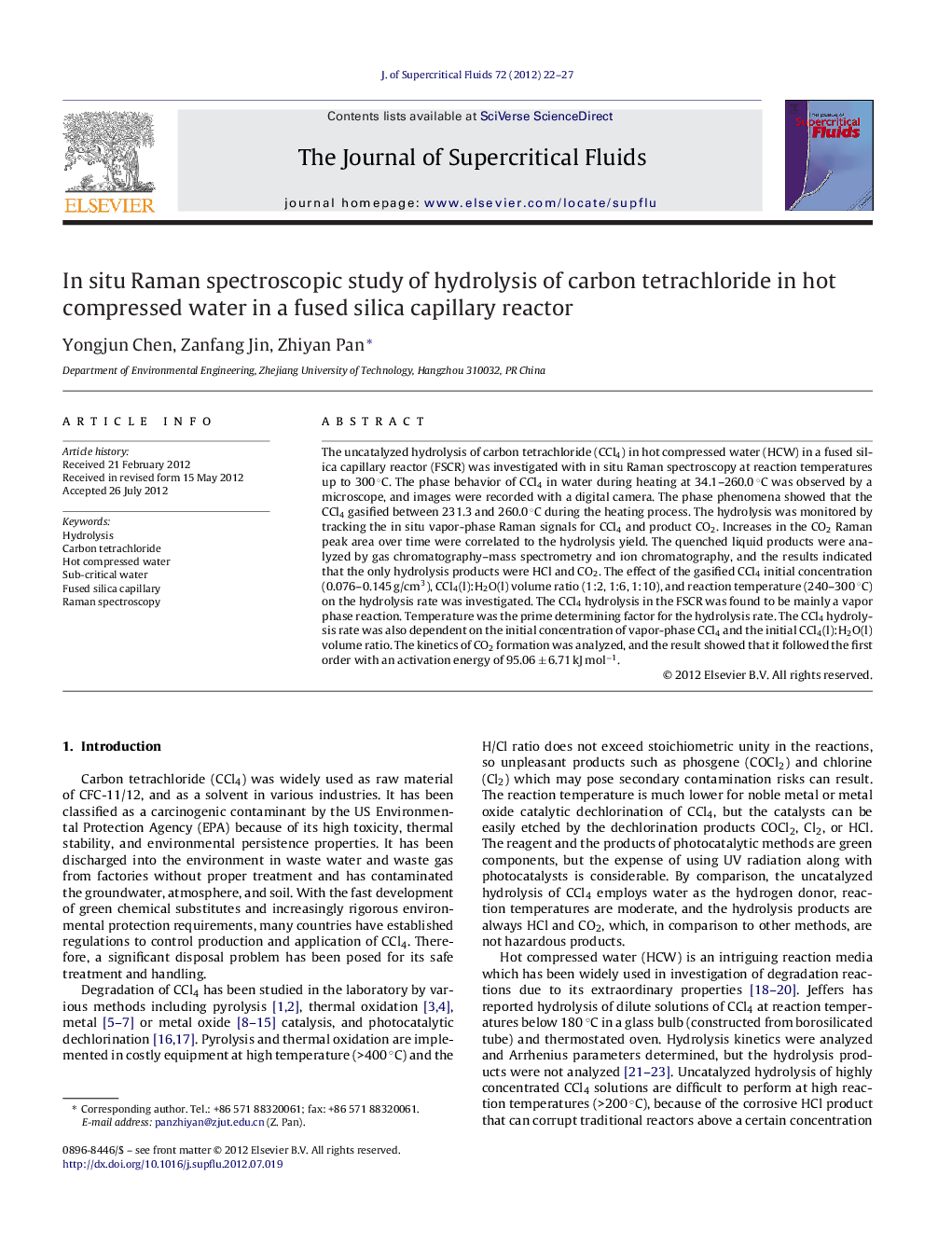| Article ID | Journal | Published Year | Pages | File Type |
|---|---|---|---|---|
| 230958 | The Journal of Supercritical Fluids | 2012 | 6 Pages |
The uncatalyzed hydrolysis of carbon tetrachloride (CCl4) in hot compressed water (HCW) in a fused silica capillary reactor (FSCR) was investigated with in situ Raman spectroscopy at reaction temperatures up to 300 °C. The phase behavior of CCl4 in water during heating at 34.1–260.0 °C was observed by a microscope, and images were recorded with a digital camera. The phase phenomena showed that the CCl4 gasified between 231.3 and 260.0 °C during the heating process. The hydrolysis was monitored by tracking the in situ vapor-phase Raman signals for CCl4 and product CO2. Increases in the CO2 Raman peak area over time were correlated to the hydrolysis yield. The quenched liquid products were analyzed by gas chromatography–mass spectrometry and ion chromatography, and the results indicated that the only hydrolysis products were HCl and CO2. The effect of the gasified CCl4 initial concentration (0.076–0.145 g/cm3), CCl4(l):H2O(l) volume ratio (1:2, 1:6, 1:10), and reaction temperature (240–300 °C) on the hydrolysis rate was investigated. The CCl4 hydrolysis in the FSCR was found to be mainly a vapor phase reaction. Temperature was the prime determining factor for the hydrolysis rate. The CCl4 hydrolysis rate was also dependent on the initial concentration of vapor-phase CCl4 and the initial CCl4(l):H2O(l) volume ratio. The kinetics of CO2 formation was analyzed, and the result showed that it followed the first order with an activation energy of 95.06 ± 6.71 kJ mol−1.
Graphical abstractFigure optionsDownload full-size imageDownload as PowerPoint slideHighlights► We use an optical fused silica capillary reactor (FSCR) with in situ Raman spectroscopy analysis as a new study method. ► The hydrolysis process of carbon tetrachloride (CCl4) in hot compressed water (HCW) and phase behavior was studied. ► The hydrolysis of CCl4 in HCW in FSCR is uncatalyzed. ► FSCR-based method is visually, low in energy and materials consumptions, safe, repeatable and efficient.
